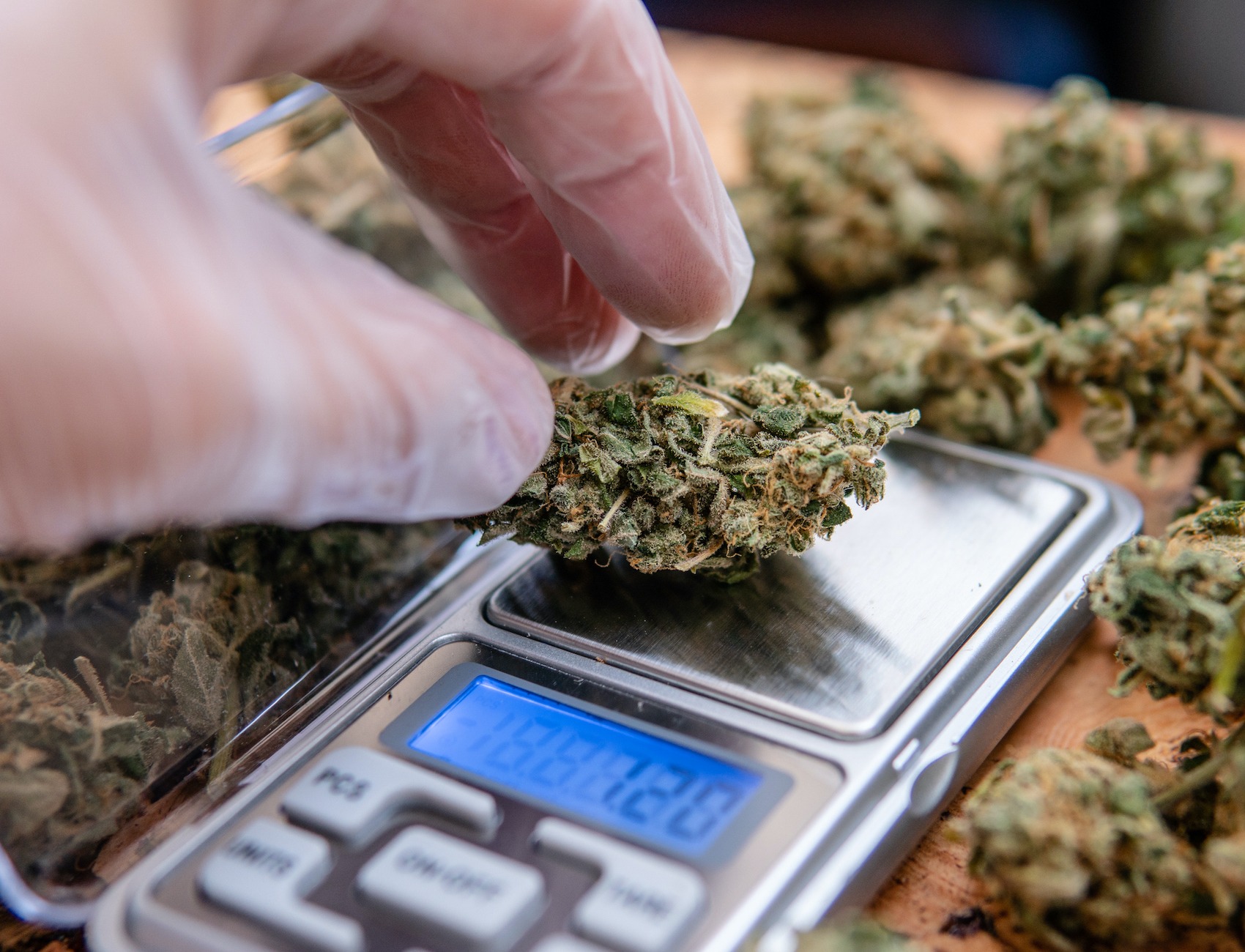Commentary
The House Just Passed a Historic Marijuana Bill. Now the Senate Must Act.
After decades of harm, wrought by the war on drugs, the federal government has finally listened to the American people by voting to decriminalize marijuana.

This commentary is part of The Appeal’s collection of opinion and analysis.
On Friday, the Democratic-led House of Representatives made history by passing the Marijuana Opportunity Reinvestment and Expungement (MORE) Act by a 228-164 vote. The vote fell along party lines, but six Democrats voted against and five Republicans voted in favor.
The MORE Act removes marijuana from the list of scheduled substances under the federal Controlled Substances Act, removing all federal criminal penalties for any individual who manufactures, distributes, or possesses marijuana. To begin the process of repairing decades of harm done to communities of color and wrought by the drug war, the act also includes several criminal justice and economic reforms, like expunging prior marijuana convictions and prohibiting the denial of public benefits on the basis of cannabis use or arrests.
“If you want to know what systemic racism is, look no further than the war on drugs,” Udi Ofer, director of the Justice Division at the American Civil Liberties Union, said Friday in a joint statement with the Drug Policy Alliance. “Today we celebrate passage of the MORE Act through one chamber of Congress, and tomorrow we will work in the Senate to remove last-minute amendments that diluted the impact of this historic bill.”
Maritza Perez, director of the Drug Policy Alliance’s Office of National Affairs, was similarly celebratory but emphasized that the drug war is far from over: “We are cognizant of the work ahead to ensure we improve this bill in the next Congress to truly reflect our principles.”
Passage of the MORE Act marks the first time a chamber of Congress has even considered marijuana decriminalization at the federal level, a monumental sign that America’s cannabis prohibition is truly beginning to unravel. But the fate of the act ever becoming law now rests within a Senate currently controlled by Mitch McConnell, a staunch opponent of progressive drug laws. He has not said whether he will allow a vote on the bill.
To begin bridging the widening gap between state and federal drug laws, the Senate must pass the MORE Act.
Federal drug laws still lag far behind state policy and are increasingly out of step with an electorate hungry for major drug policy reform. The November election, for example, brought the total number of states that have legalized cannabis to 15.
Recognizing the pain and misery of the drug war on Black and Latinx communities, the MORE Act includes meaningful criminal justice reforms. According to the FBI, Black people were nearly four times more likely than white people to be arrested for marijuana possession, despite the fact that more white people use the drug. To remedy this racial disparity in marijuana arrests, people with prior marijuana convictions will have their records expunged.
The measure also seeks to ameliorate economic disparities in the booming, billion-dollar cannabis industry dominated by wealthy white people. A 2017 survey shows that very few Black people––only 4 percent––have a stake in the existing cannabis industry in states where cannabis is commercially legal. To right this economic injustice, the MORE Act would create a fund for small-business loans that allow access to marijuana licensing and employment opportunities for people of color who have been priced out of the legal cannabis industry. Using tax revenue on cannabis sales, the bill also creates job training, legal aid, and avenues for addiction treatment to those who have been disparately affected by overzealous drug enforcement, policing, and incarceration.
Few Republicans vocally support the end of marijuana prohibition. During a debate on the House floor, Representative Matt Gaetz of Florida said, “The federal government has lied to the people of America about marijuana for a generation.” Meanwhile, Gaetz’s GOP colleagues have leaned on old and discredited arguments from the 1980s, including that marijuana is a “gateway drug” to using other illicit drugs.
But Republicans in the Senate have mocked the very idea of decriminalizing cannabis during a pandemic and described the MORE Act as a frivolous endeavor. If Senate Republicans decide to block the measure, they will wield their power for only a small minority of moral crusaders—and Americans will take note. Deep-red states like Montana and South Dakota voted to legalize marijuana last month, so the GOP would be ignoring their own constituents’ desire for the end of the drug war.
The House’s approval of the MORE Act is indeed an enormous achievement and victory for racial justice. Just a few years ago, the notion of descheduling cannabis at the federal level and reinvesting in communities harmed by the drug war was a pipe dream among drug policy reformers.
Though cannabis use is increasingly destigmatized, and state after state has eased previously draconian marijuana laws, it’s important to recognize that many people, most of them Black and Latinx, are serving lengthy prison sentences for marijuana offenses. The MORE Act could have an enormous effect on their lives and return them their freedom.
Zachary Siegel is a freelance journalist in Chicago and fellow at the Health in Justice Action Lab, a policy think tank at Northeastern University School of Law. His work has appeared in the New York Times Magazine, The Atlantic, Slate, and Wired, among others.
